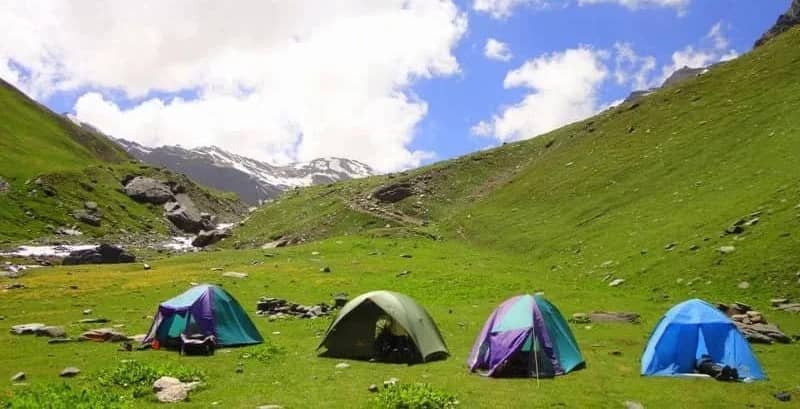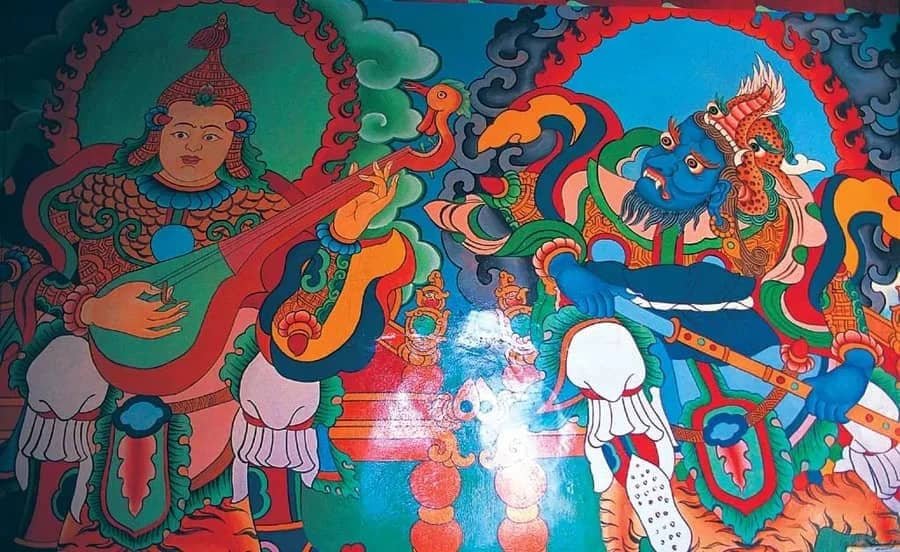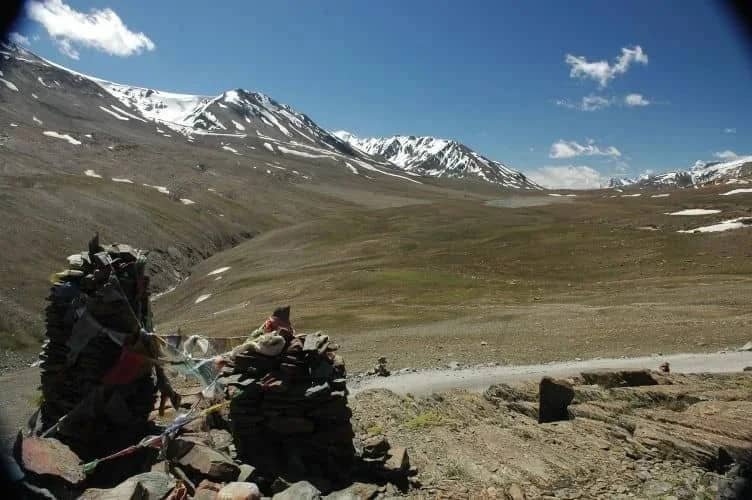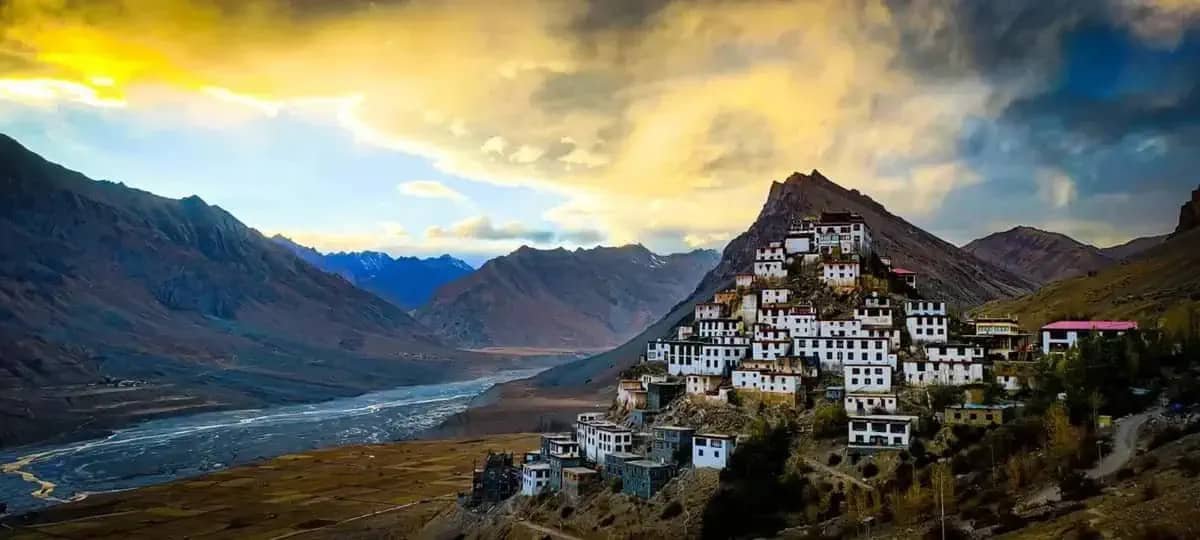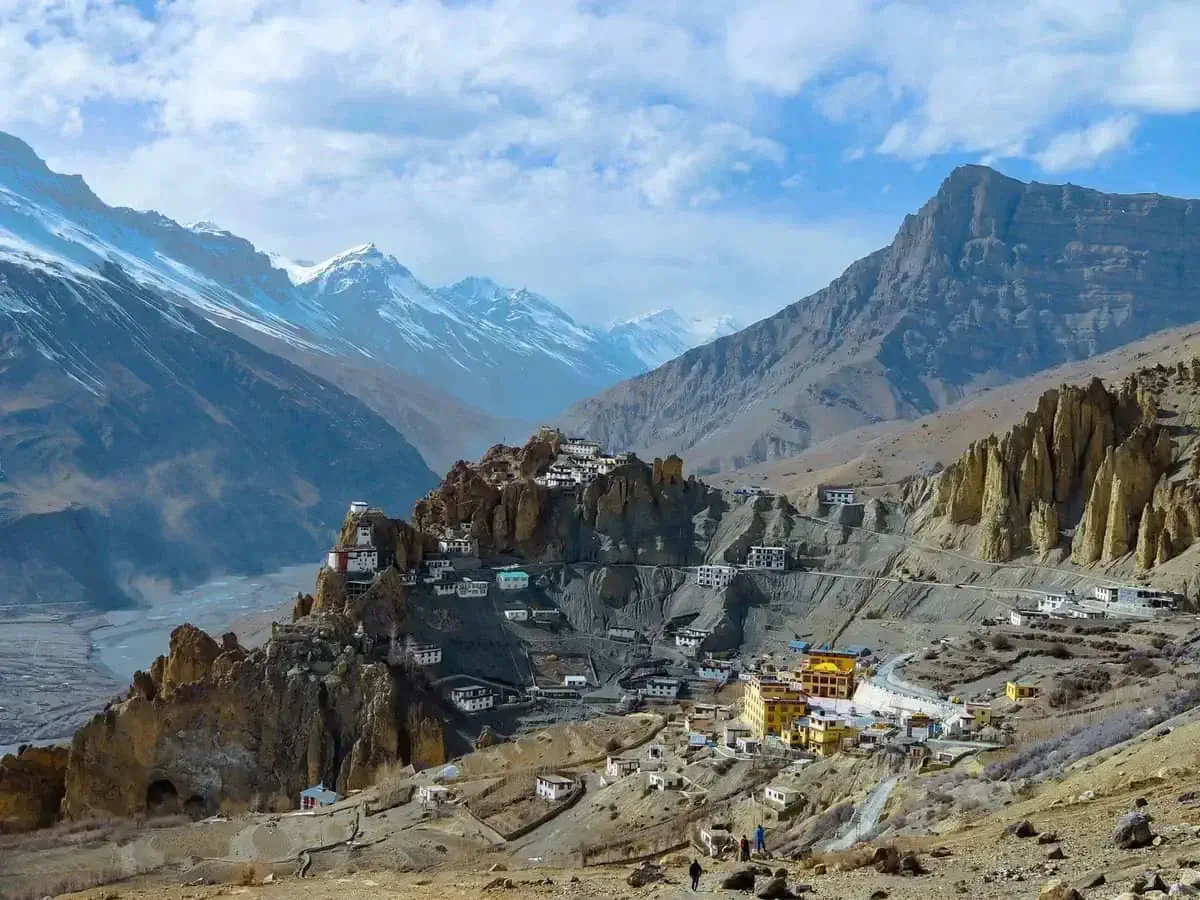Lahaul and Spiti is a district of Himachal Pradesh with its headquarters at Keylong. Lahaul and Spiti is the fourth least populous district of India. The district was formed in 1960. It is considered to be the best place in India to visit in the summer. Before the merger of the 2 districts, Kardang was the capital of Lahaul, and Dhankhar was the capital of Spiti. In this post, you will find interesting points to read about Lahaul and Spiti. We have also written the history of Lahaul and Spiti on this website, so if you are interested in studying then click on History of Lahaul and Spiti.
Interesting facts about Lahaul and Spiti
According to the famous author Rahul Sanskritikyayan, Lahaul means the land of God. The name is Lahaul is a distorted version of ‘Rahul’, the son of Lord Buddha, while Spiti means “Land of Gems” (Land of Precious Stones).
From the highest and most breathtakingly beautiful monasteries to the cold desert mountainous natural splendor of Lahaul and Spiti, this place is one of the best in the entire country for peace of mind.
The lifestyle of Lahauli and Spiti Bhot is similar. Cultivation of potato peas is common in agriculture. Occupations include animal husbandry, working in government programs and services, and weaving, among other occupations. The houses are built in the Tibetan architectural style, as the land of Lahul and Spiti is hilly and very vulnerable to earthquakes. In case of estrangement between husband and wife, either of the husband and wife can take divorce. The divorce is accomplished by a simple ceremony performed in the presence of the village elders. If the husband does not remarry, the husband has to pay compensation to his ex-wife.
Religion – Most Lahauli follow a combination of Hinduism and Tibetan Buddhism, while the Spiti Bhotias follow Tibetan Buddhism of the Gelugpa order. Before Tibetan Buddhism and Hinduism, people were followers of the ‘Lang Pe Chhoi’ religion. It is believed that even animals and humans were sacrificed in this religion. Losar festival is celebrated in Lahul. It is as important as the festival of Diwali. The festival is celebrated between January and February. The date of the festival is decided by the lamas and is celebrated in Tibetan fashion.
Spiti is considered to be the land of Lamas and is one of the important centers of Buddhism. There are many Buddhist monasteries or gompas in the Spiti Valley. Kai Monastery is one of the major learning centers of Buddhist studies in Spiti. It is the oldest and largest monastery of Spiti. It has rare images and texts of Buddha and other gods and goddesses. Tabo Monastery is called the ‘Ajanta of the Himalayas’, it is situated at an altitude of 3050 meters. Tabo Monastery is located 45 km from Kaza. Tabo Monastery was founded by the scholar Richen Zangpo. There is a modern guest house with a dining room and facilities and a monastery for over 60 lamas.
Kardang Math is in Lahaul and is about 14 km from Keylong. Built-in the 12th century, the monastery is said to have a large library of Buddhist literature, including the main Kangyur and Tangyur scriptures.
Area (km2): 13833
District HQ: Keylong
Tehsils: Lahul, Spiti (Kaza), Udaipur
Population (2011): 31564
Languages: Manchad, Bhoti, Sanskrit
Rivers: Chandra River, Spiti River, Chenab River, Bhaga River, River Pin, and Parang River.
Travel Destinations:
Keylong Museum, Deepaktal Lake, Pin Valley National Park, Suraj Taal, Kunzum Pass, Neel Kanth, Chandra Taal, Trilokinath Temple, Markula Devi Temple, Godhla Fort, Guru Ghantal, Sha-Shur, Kardang, Tayul, Ghemur, World’s Highest Post Office, Hikkim, Langza Village, Key Monastery, Tabo Monastery, Kibber Village, Kaza, Dhankar Lake, etc.
Geography and Climate
Lahaul and Spiti district is connected to Manali through the Rohtang Pass and is geographically situated on the Tibetan Plateau. The Kunzum Pass has an altitude of 4,551 meters and is the gateway to the Spiti Valley from Lahaul. The Spiti River rises from a gorge in the southeast and joins the Sutlej River. Spiti is a typical mountainous desert region, with an average annual rainfall of 170 mm. The cultural relations of Lahaul and Spiti are largely similar to those of Tibet.
The weather is pleasant and quite comfortable during summers from May to mid-October. This is the best season to visit this valley. One can always enjoy the bright sunshine while roaming inside the lush green valley. From November to April there is heavy snowfall, and the temperature drops to minus.
Demographics:
As of the 2011 India census, Lahaul and Spiti districts had a population of 31,564. And the literacy rate is 76.81%. Kinnauri, Pattani, Bhotia, Hindi, English, Nepali, and Tibetan languages are spoken in the district. It is said that Lahauli is of Tibetan and Indo-Aryan ancestry and Spiti Bhot is of Tibetan ancestry.
Best Time to Visit :
Lahaul and Spiti can be visited from April to October, the rest of the time they cannot be visited due to snow. The roads and villages here are free of snow only from April to October. Sometimes the road is temporarily closed by landslides or avalanches. One can enjoy skiing, trekking, and river-rafting activities in the region. Natural scenery and several Buddhist monasteries are major tourist attractions of the region. Skiing in Spiti is a popular activity among tourists.
Famous passes like Pin Parvati Pass, Baba Pass, Hamta Pass Trek, and Spiti Left Bank Trek are permitted from June to October. Popular trekking routes in the area include Kaza-Langza-Hikim-Komik-Kaza, Kaza-Ki-Kibber-Gete-Kaza, Kaza-Losar-Kunjam La, and Kaza-Tabo-Sumdo-Nako.
How to reach Lahaul and Spiti:
By Air- the nearest airport – Bhuntar is in Kullu which is 160 km from Keylong.
By Train- The nearest railway station is Chandigarh via Manali.
By Road- Via Shimla-Kinnaur-Nako-Sumdo (Spiti Valley)-Tabo-Kaja, commonly known as the Hindustan-Tibet Highway. These places can be visited from this highway.



